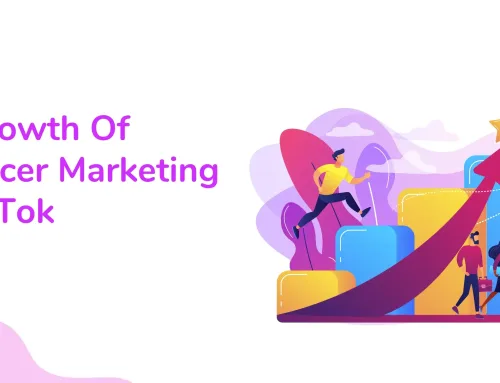In today’s whirlwind of a business environment, change doesn’t just knock on the door; it practically knocks it down. The digital age has ushered in a rapid evolution of market dynamics, consumer behaviors, and technological innovations.
This relentless pace demands leaders who are not just survivors but navigators—those who can steer their ships through turbulent waters with adaptability, innovation, and strategic foresight.
Enter the realm of business education, a lighthouse for those braving these stormy seas. Among its shining beacons is the IB Business Management course, a compass for aspiring leaders aiming to chart their course in the ever-changing business world.
Let’s face it, without a solid foundation in business principles, navigating today’s complex business landscape is akin to sailing without a compass. The need for leaders equipped with the skills to adapt, innovate, and strategize has never been more critical. This is where business education, and specifically IB Business Management, steps in, preparing the leaders of tomorrow to face the challenges of today with confidence and acumen.
Adaptability: The Core of Business Survival
When we talk about adaptability in business, we’re really talking about the art of survival. Take Netflix, for example. Once a humble DVD rental service, it pivoted to streaming, becoming the colossus of entertainment it is today. Then there’s Nokia, a cautionary tale of a giant that stumbled because it couldn’t adapt to the smartphone revolution. These stories aren’t just business lore; they’re lessons in the critical importance of evolving with the market.
But adaptability isn’t just about dodging bullets. It’s about turning challenges into opportunities. Companies that can swiftly pivot in response to market changes don’t just survive; they thrive, setting new benchmarks and defining industry standards. This agility is a superpower in today’s fast-paced world, where a technological breakthrough or a global event can turn the market on its head overnight.
So, how do businesses stay on their toes? It boils down to a culture that champions innovation, a keen eye on market trends, and the courage to take calculated risks. It’s these qualities that business education aims to instill in future leaders, arming them with the agility to navigate the complexities of the global market with confidence and foresight.
Strategic Thinking: Planning for the Long Haul
Strategic thinking is the compass that guides businesses through the unpredictable seas of the global market. Giants like Amazon and Tesla didn’t just stumble upon success; they charted their course with visionary leadership and meticulous long-term planning. Their journeys underscore the power of having a clear vision, setting ambitious goals, and executing well-thought-out strategies.
But strategic thinking isn’t just about plotting a course; it’s about foreseeing the storms ahead and preparing to weather them. This foresight enables businesses to devise innovative solutions and strategies that address current needs while paving the way for future growth. It’s about peering over the horizon, anticipating what’s next, and preparing to meet it head-on, ensuring businesses remain relevant and competitive in the long run.
Moreover, strategic thinking involves making tough choices and prioritizing resources in alignment with long-term objectives. It’s a balancing act between being flexible enough to adapt to immediate changes and focused enough to stay the course toward the ultimate vision. This blend of adaptability and strategic foresight is crucial for navigating today’s complex business environment.
IB Business Management: Cultivating Future-Ready Leaders
At the heart of preparing students for the modern business world stands the IB Business Management course. It’s a crucible where future leaders are forged, equipped with the knowledge and skills to face the business challenges of today and tomorrow. The course is meticulously designed to mirror the latest business trends and technologies, ensuring that its curriculum is as dynamic as the market it addresses.
What sets IB Business Management apart is its emphasis on real-world application. Students dive into current case studies, engage in simulations, and undertake projects that reflect the complexities of the business world. This hands-on approach not only enriches learning but also primes students for the practical challenges that lie ahead in their careers.
Furthermore, the course broadens students’ horizons, encouraging a global perspective essential for today’s interconnected market. It covers the intricacies of cultural sensitivity, global marketing strategies, and the nuances of international regulations. This comprehensive approach ensures that IB Business Management graduates are not merely ready for the future but are poised to shape it.
Learning from Failure: A Key Component of the IB Curriculum
The road to success is often paved with failures, and the ability to learn from these setbacks is a cornerstone of the IB Business Management curriculum. By dissecting case studies of business failures, the course emphasizes resilience and the capacity to transform challenges into stepping stones for success. This perspective fosters a mindset that views failure not as a defeat but as a vital learning opportunity.
Delving into these failures, students uncover the factors that lead to business downfalls, from strategic missteps to a lack of adaptability. These insights are invaluable, equipping future leaders with the foresight to sidestep similar pitfalls in their own careers. Moreover, an open discussion of failures cultivates a culture of transparency and continuous improvement, essential for any thriving business.
Resilience, born from overcoming failures, is a hallmark of effective leadership. It instills confidence, drives innovation, and propels growth, even in the face of adversity. By integrating the study of failures into its curriculum, IB Business Management molds students to navigate the business world’s ups and downs with grace and determination.
Innovation and Creativity: The Heart of Business Strategy
Innovation and creativity are not just buzzwords; they’re the engines of business strategy, propelling growth and distinguishing companies in a crowded marketplace. The IB Business Management course places a premium on nurturing these skills, inspiring students to think creatively and develop innovative solutions to complex business challenges. This emphasis on creativity prepares students not just to face the business world but to lead it by example.
Through project-based learning and engaging case studies, students encounter a variety of business scenarios that demand creative problem-solving. This experiential approach encourages experimentation and risk-taking, laying the groundwork for innovation. By challenging conventional thinking, students learn to craft unique strategies that can lead to market breakthroughs.
Additionally, the course underscores the importance of staying abreast of technological advancements and leveraging them to foster business innovation. In an era where technology reshapes business landscapes, this focus ensures students are well-prepared to use innovation as a tool in their future endeavors.
Global Perspectives: Understanding International Business
In the tapestry of today’s business world, a global perspective is not just an asset; it’s a necessity. The IB Business Management course equips students with a deep understanding of the complexities of international business, covering essential topics like cultural sensitivity, global marketing strategies, and the intricacies of international regulations. This global lens is crucial for navigating a market where businesses increasingly transcend borders and engage with diverse cultures.
Grasping cultural nuances and tailoring business practices accordingly can spell the difference between success and failure on the international stage. The course arms students with the skills to navigate these cultural differences, fostering an appreciation for diversity and the ability to forge strong, cross-border relationships. This global mindset is a key asset in today’s business landscape, enabling leaders to effectively manage international teams and operations.
Moreover, the course tackles the challenges of global competition and the strategies businesses can employ to thrive in a global marketplace. From understanding global supply chains to crafting international marketing strategies, students gain a comprehensive view of the factors that influence international business success. This preparation is invaluable for future leaders aiming to make their mark on the global stage.
Ethics and Sustainability: Building Businesses for the Future
Ethics and sustainability are the cornerstones of modern business strategy, essential for building successful and responsible enterprises. The IB Business Management course emphasizes the critical importance of ethical decision-making and sustainable business practices, preparing students to lead with integrity and a commitment to social responsibility. This focus on ethics and sustainability mirrors the increasing demand for businesses to contribute positively to society and the environment.
Students explore the ethical dilemmas businesses face and the frameworks for ethical decision-making. This education cultivates a sense of responsibility and accountability, urging future leaders to consider their actions’ broader impact on stakeholders and the environment. By prioritizing ethics and sustainability, businesses not only build trust with consumers but also create long-term value for society.
Furthermore, the course highlights the opportunities sustainability presents for innovation and competitive advantage. From developing eco-friendly products to implementing sustainable supply chains, students discover how businesses can drive growth while making a positive impact on the world. This holistic approach ensures graduates are equipped to lead businesses that are not only successful but also sustainable and ethical.
From Classroom to Boardroom: Alumni Success Stories
The journey from the classroom to the boardroom is filled with both challenges and opportunities. Alumni of the IB Business Management course have navigated this path with distinction, applying the skills and knowledge acquired to excel in the business world. Their stories, diverse and inspiring, showcase the tangible impact of the course on their careers, from launching innovative startups to leading multinational corporations.
These alumni attribute their success to the solid foundation in business principles provided by the course, along with the adaptability, strategic thinking, and leadership skills it fostered. While the specifics of their journeys vary, a common theme emerges: the importance of resilience and the willingness to embrace continuous learning. The business landscape is ever-evolving, and the ability to adapt and grow is crucial for sustained success.
Moreover, these stories highlight the real-world applicability of the course, demonstrating how the skills and knowledge gained can be directly applied to overcome obstacles and seize opportunities. These narratives underscore the value of a business education that not only prepares students for the realities of the business world but also equips them with the tools to navigate its complexities with confidence.
The Future of Business Education
As we gaze into the future, the significance of business education in preparing students for the challenges and opportunities of the modern business world is undeniable. Courses like IB Business Management are at the forefront of shaping tomorrow’s leaders, providing them with the knowledge, skills, and mindset needed to navigate the complexities of the global market. With a focus on adaptability, strategic thinking, innovation, and ethics, these courses are preparing students not just to succeed in their careers but to lead with integrity and vision.
The future of business education lies in its ability to evolve alongside the changing business landscape, continuously updating its curriculum to reflect the latest trends and technologies. By fostering a global perspective, encouraging creativity, and emphasizing the importance of ethics and sustainability, business education can equip future leaders with the tools they need to build successful, responsible, and innovative businesses. As we move forward, the role of business education in shaping the future of the business world will only continue to grow, making it an essential foundation for anyone aspiring to lead in the ever-evolving world of business.










